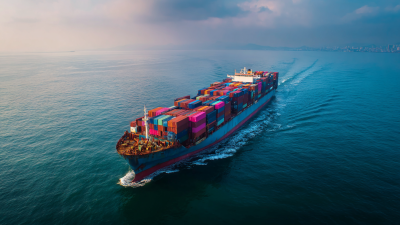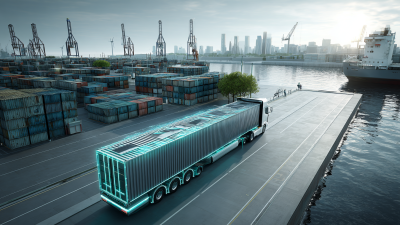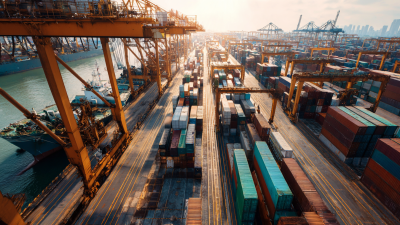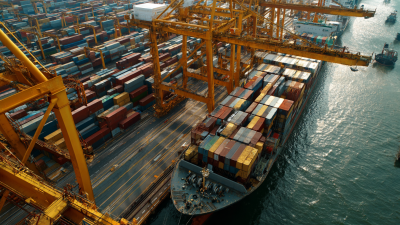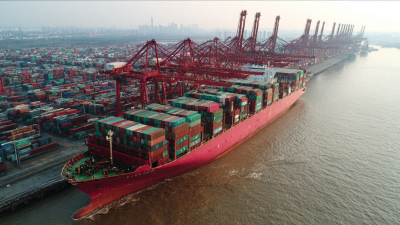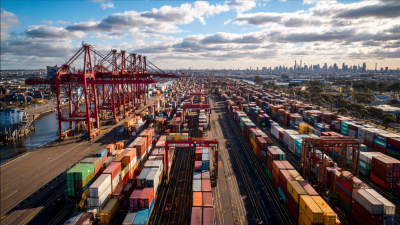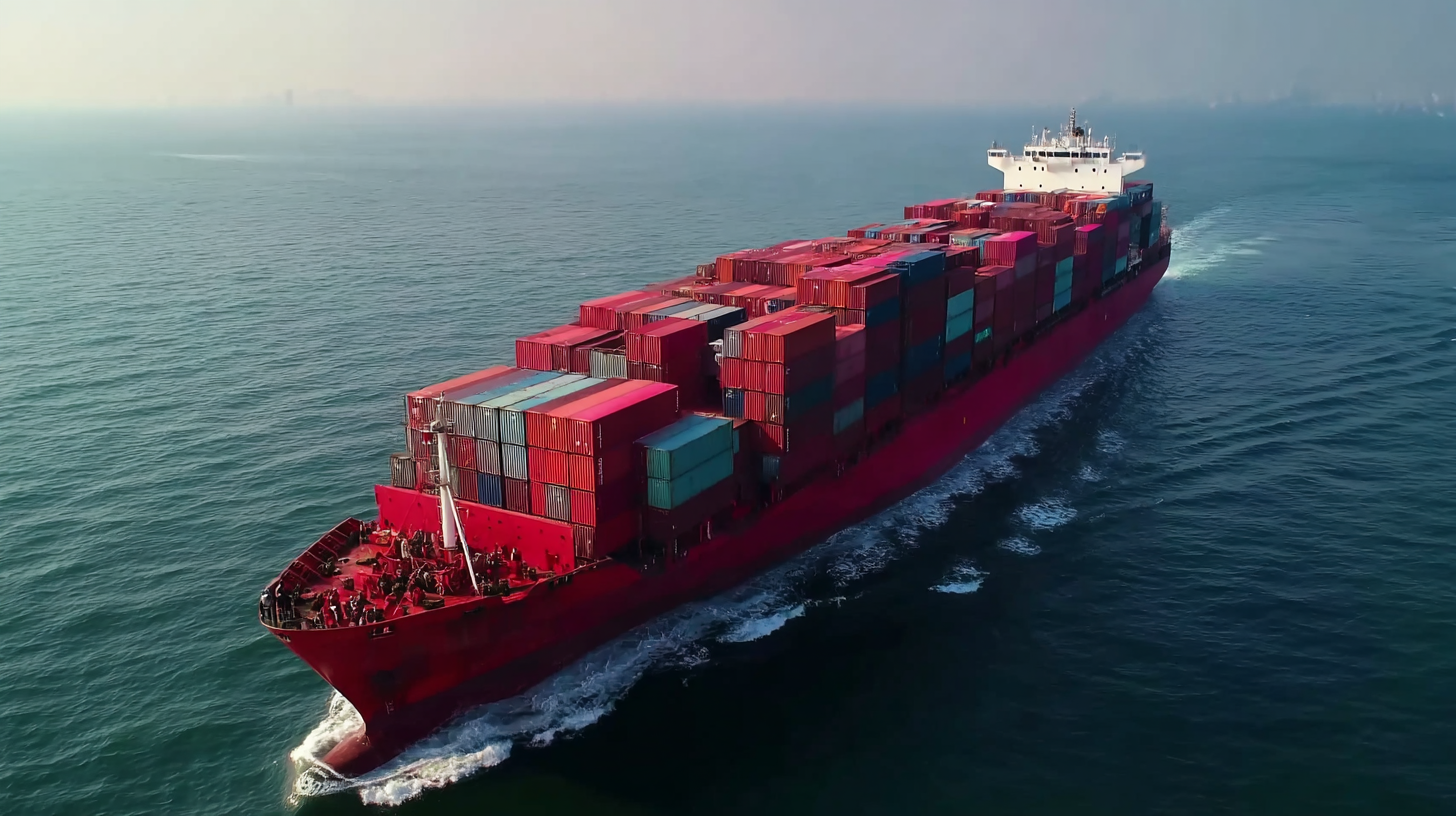 As we look toward the horizon of maritime shipping, the evolution of Sea Logistics promises to unveil a myriad of trends and innovations that could redefine the industry by 2025. According to Dr. Sarah Mitchell, a seasoned expert in maritime supply chain management, "The future of Sea Logistics is not just about moving goods; it's about smart integration and sustainable practices that connect every link of the supply chain." This perspective underscores the importance of adapting to technological advancements and environmental challenges that are increasingly shaping how we approach logistics on the seas.
As we look toward the horizon of maritime shipping, the evolution of Sea Logistics promises to unveil a myriad of trends and innovations that could redefine the industry by 2025. According to Dr. Sarah Mitchell, a seasoned expert in maritime supply chain management, "The future of Sea Logistics is not just about moving goods; it's about smart integration and sustainable practices that connect every link of the supply chain." This perspective underscores the importance of adapting to technological advancements and environmental challenges that are increasingly shaping how we approach logistics on the seas.
In the coming years, the integration of artificial intelligence, automation, and greener shipping practices is anticipated to revolutionize Sea Logistics. These innovations will facilitate more efficient operations, reduce costs, and minimize the environmental footprint of maritime transport. As companies embrace these trends, they will not only enhance their competitive edge but also contribute to fostering sustainable growth within the entire logistics ecosystem.
In summary, the trajectory of Sea Logistics by 2025 is set to be influenced by groundbreaking technologies and innovative strategies that will transform the maritime shipping landscape. Stakeholders must remain proactive and agile to navigate these changes and fully harness the potential that lies ahead, ensuring a resilient and efficient future for global trade.
The maritime industry is on the brink of transformation, driven by emerging technologies that are redefining shipping operations. One significant advancement is the integration of artificial intelligence (AI) across various facets of maritime logistics. Recent reports indicate that AI can enhance safety management and operational efficiency by up to 30%, allowing for real-time decision-making and predictive maintenance. Companies are now leveraging AI-driven solutions to streamline vessel maintenance, reducing operational disruptions and costs as vessels increasingly face complex challenges at sea.
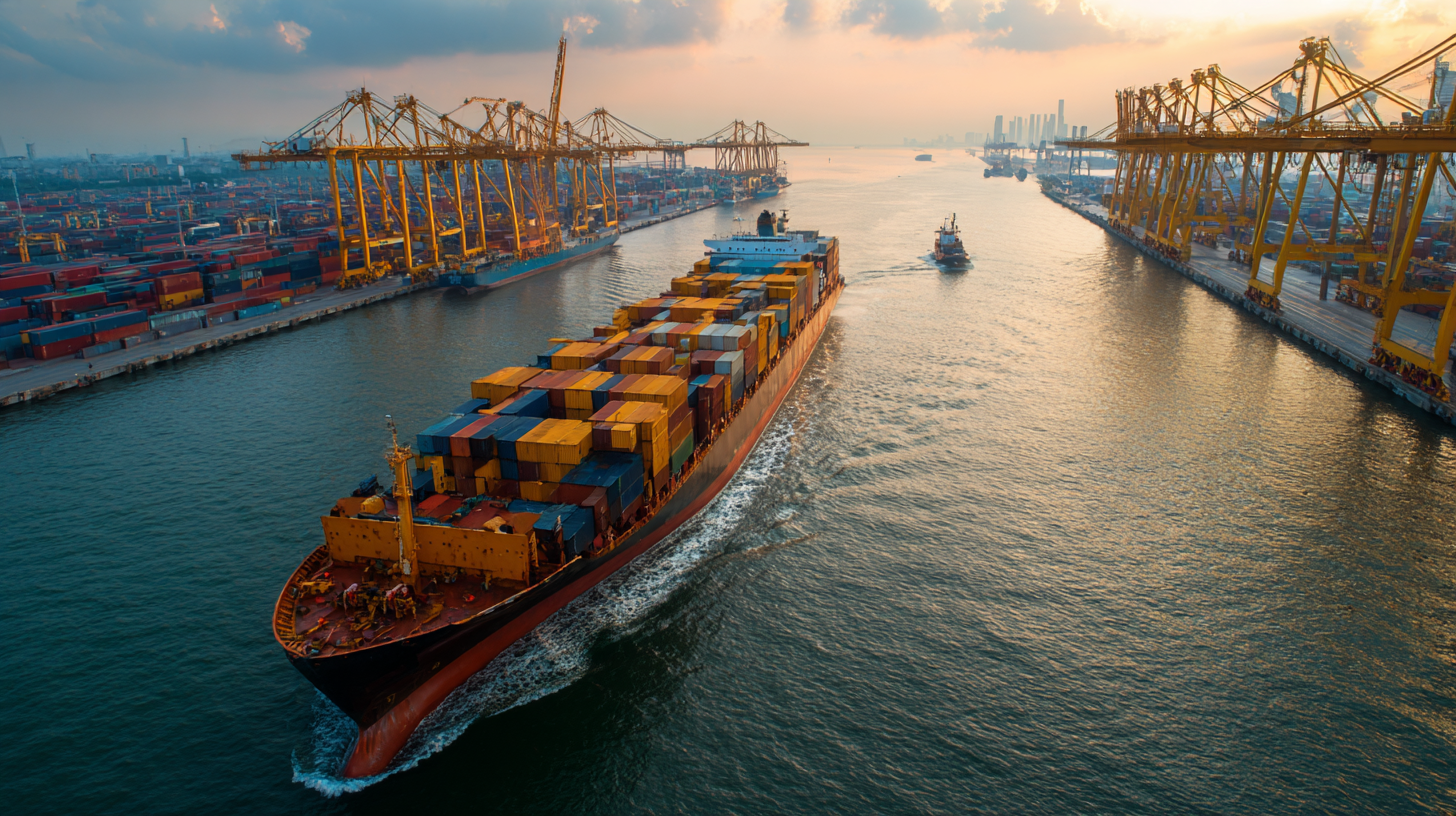
Furthermore, the rise of autonomous vessels marks a pivotal shift in maritime transport. These technologically advanced ships are designed to optimize efficiency and minimize human error, contributing to environmental sustainability by lowering emissions. A recent study underscores that the adoption of autonomous vessels could potentially reduce operational costs by 20-30% and increase overall supply chain reliability. Innovations, including real-time data sharing platforms, are further enhancing transparency within the maritime sector, enabling stakeholders to monitor and respond proactively to maritime challenges. As the industry progresses, the convergence of these technologies will undoubtedly reshape the future of maritime shipping, paving the way for a more efficient and sustainable operational landscape.
Sustainable practices are increasingly becoming the backbone of maritime shipping as the industry looks towards a greener future. In 2025, shipping companies will prioritize eco-friendly technologies and methods to minimize their carbon footprint. This shift includes the adoption of alternative fuels, such as hydrogen and biofuels, which promise to reduce emissions significantly compared to traditional fossil fuels. Investments in innovative energy-efficient vessels will also play a critical role in transforming the sea logistics landscape, helping to meet global environmental standards.
Furthermore, the integration of AI and big data analytics is enabling companies to optimize their routes and operations, consequently reducing fuel consumption and waste. Enhanced predictive maintenance facilitated by IoT devices can lead to innovative logistics practices, ensuring that ships operate smoothly and efficiently. Collaborative efforts between governments and shipping firms are also crucial, as they work together to implement sustainable regulations and investments in green infrastructure, ensuring a robust and environmentally responsible maritime industry for years to come.
In the evolving landscape of maritime shipping, digitalization stands out as a pivotal force driving supply chain efficiency. As companies increasingly adopt advanced technologies like IoT, AI, and blockchain, the traditional shipping processes are being transformed into streamlined, transparent operations. Real-time tracking and data analytics enhance decision-making, allowing stakeholders to respond swiftly to changes and optimize routes, thus reducing transit times and costs.
Moreover, digital platforms foster collaboration among various entities in the supply chain. By providing a centralized hub for information sharing, these platforms enable seamless communication between shippers, carriers, and logistics providers. This interconnectedness not only simplifies documentation and inventory management but also minimizes risks associated with delays and disruptions. As the maritime industry embraces these innovations, the potential for increased efficiency and responsiveness continues to grow, setting the stage for a more agile and resilient shipping environment in 2025 and beyond.
| Trend | Description | Impact on Efficiency | Expected Adoption Year |
|---|---|---|---|
| Blockchain Technology | Enhancing transparency and traceability in shipping processes. | Reduces fraud and improves trust across supply chains. | 2025 |
| Internet of Things (IoT) | Using smart sensors for tracking shipments in real-time. | Enhances operational efficiency and reduces delays. | 2025 |
| Autonomous Shipping | Implementation of unmanned vessels for cost reductions. | Decreases labor costs and improves safety. | 2026 |
| AI and Advanced Analytics | Leveraging AI for predictive analytics in routing and logistics. | Increases efficiency and reduces operational costs. | 2025 |
| Sustainability Initiatives | Adopting green practices to reduce environmental impact. | Improves compliance and brand reputation. | 2026 |
Innovative container designs are revolutionizing cargo transport, heralding a new era for maritime shipping. As the industry adapts to increased demands for efficiency and sustainability, advancements in container technology are leading the charge. The integration of smart containers equipped with sensors allows for real-time tracking of cargo, improving visibility and reducing delays in the supply chain. This data-driven approach enhances logistics operations, ensuring that goods are transported in optimal conditions, thus minimizing waste and loss.
Further transforming the landscape of cargo transport are eco-friendly designs aimed at reducing the carbon footprint of shipping. Innovations such as modular containers enable more efficient use of space, allowing ships to carry diverse types of cargo without compromising safety or accessibility. As the shipping industry faces mounting pressure to meet sustainability targets, these transformative container designs are not just enhancing operational efficiencies but also playing a critical role in the global push towards greener shipping practices.
This chart showcases the projected percentage increase in efficiency and sustainability for various innovative container designs that are expected to shape maritime shipping in 2025.
As the maritime shipping industry approaches 2025, navigating regulatory changes will be pivotal in shaping shipping trends. Governments around the globe are increasingly focusing on implementing stringent regulations aimed at reducing carbon emissions and promoting sustainability. Initiatives such as the International Maritime Organization’s (IMO) 2023 targets for reducing greenhouse gas emissions present both challenges and opportunities for shipping companies. Adapting to these regulatory frameworks will require innovation in vessel design, fuel alternatives, and operational practices.
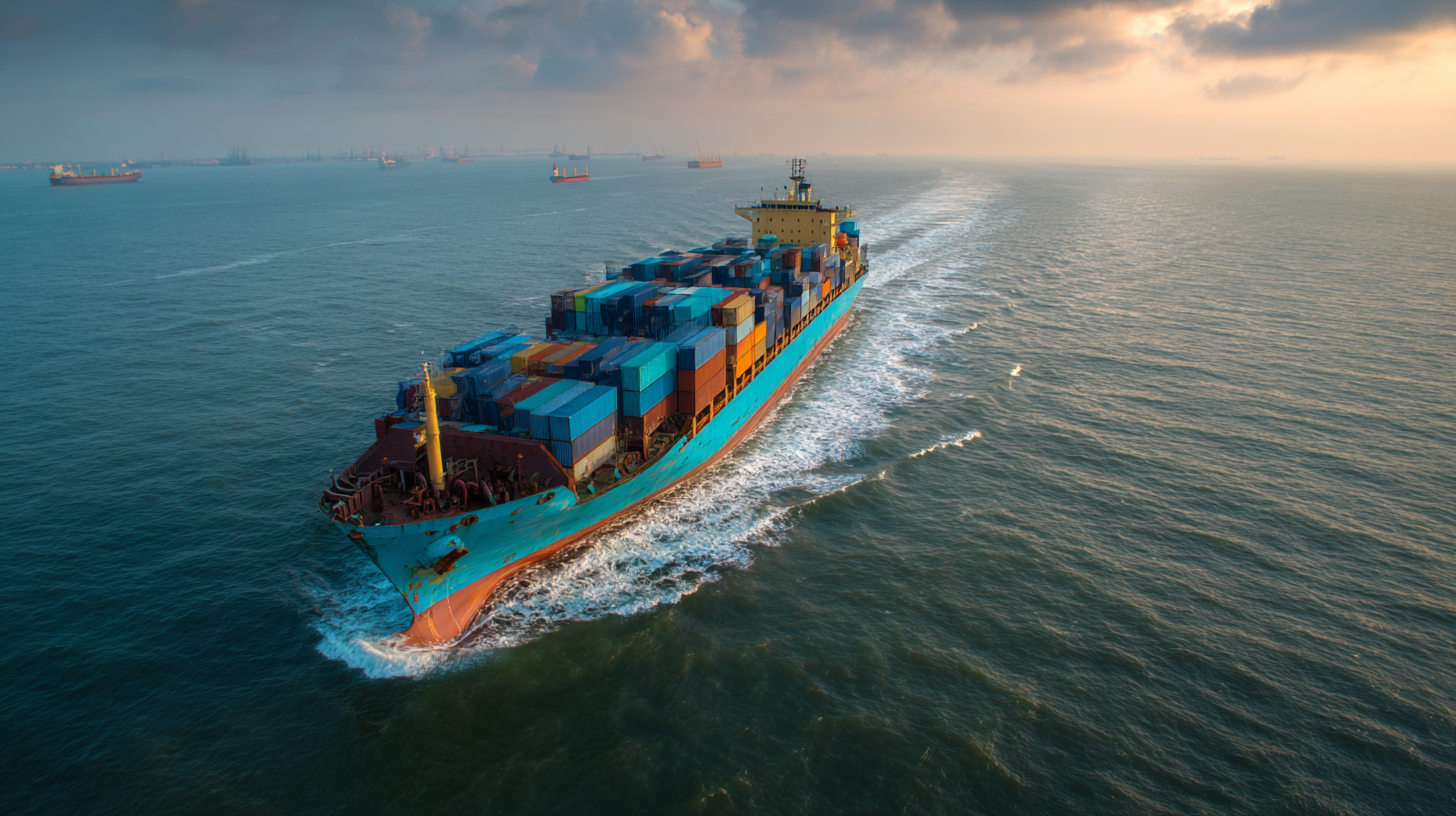
The impact of such regulations also extends to compliance costs and technology adoption. Shipping companies are compelled to invest in advanced technologies such as digital tracking systems and eco-friendly fuels, which may reshape logistics processes. Moreover, regulations concerning safety, cybersecurity, and labor standards are expected to evolve, requiring shipowners to stay informed and proactive. Ultimately, those companies that successfully navigate these changes will not only comply with new laws but also set themselves apart in a competitive market by leading sustainability and efficiency innovations.
